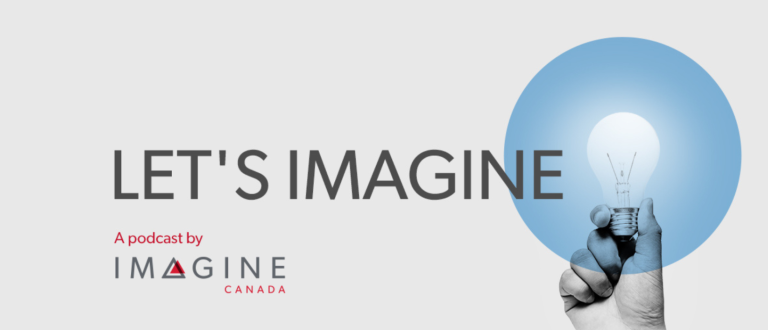Federal election preparations and public distrust in innovation are some of the trends we’re keeping an eye on this quarter
As we look at the nonprofit sector’s operating environment this Summer, we’re seeing an entrenchment of many trends that we’ve been talking about for years in this blog series: inflation may be slowing but costs are still up, labour and volunteer shortages are persistent, and demand for services is in many cases surpassing organizational capacity to deliver. In the wider world, climate-related natural disasters are not slowing down with major wildfires in the West and North, major flooding in Toronto, and Hurricane Beryl causing devastation in the Caribbean.
In this edition of our quarterly blog series, we help you make sense of two big trends: preparation for federal elections and public distrust in innovation.
Coming year will be coloured by election fever
The last several months in global electoral politics have been extremely eventful. In England, Labour swept to power after more than a decade of Conservative rule. In France, a runoff election ended with leftwing parties coming out on top but struggling to form government. To the South, the US presidential campaign has seen an assassination attempt on Republican candidate Donald Trump, followed by a late game resignation of current President Joe Biden as Democratic candidate. Change and unrest are in the air, and Canada is not immune. Polling shows opposition leader Pierre Poilievre leading in the polls, while Justin Trudeau is facing pressure to step down as party leader for the next election. These demands have only stepped up following a Conservative byelection victory in what was previously seen as a safe Liberal seat. Some analysts have suggested that the change results of recent snap elections in Europe will decrease the likelihood of the Liberals calling an early election. However, whether the election happens as expected in Fall 2025 or is early, the next year in Canadian politics will be greatly impacted by parties preparing and positioning themselves for the election.
Many in the sector are beginning to prepare for a change in government. Those who engage in federal lobbying should be paying attention to Pierre Poilievre’s recent comments calling corporate lobbyists useless. Of course, we are not the corporate sector, but because of the wider public’s lack of understanding of our sector, we may end up painted with the same broad brush. However, by looking more closely at the opposition leader’s comments, there is a strong path forward for nonprofit sector lobbyists; Poilievre has stated that the lobbyists would need to convince his government that their policy agenda is good not just for their organization or industry but for the people of Canada. The nonprofit sector’s strength is its proximity to community, so we must lean into that as we build and maintain relationships with the Conservative Party.
Organizations who engage frequently with the federal government should be preparing for a potential change in government by seeking information on opposition parties' positions on their priority issues, and considering potential opportunities and challenges that may emerge from a change in government. Of course, registered charities must follow the CRA’s guidance on public policy dialogue and development activities and always act in a non-partisan way. Now is the time to build relationships with all parties because a lot could change before an election, and it’s impossible to predict who will hold the power to help you get a policy priority across the finish line, whether from the benches of the opposition or from the cabinet table.
Excessive focus on innovation isn’t resonating with many Canadians and risks us glossing over the need for building capacity sustainably
The latest edition of the global Edelman Trust Barometer revealed the public’s lack of confidence in how innovation is being managed. Less than half of Canadians (48%) trust NGOs to integrate innovation into society. This is similar to results for business and government (49%) and media (46%). Notably, Canadian trust in one major innovation is sorely lacking; only 31% trust artificial intelligence (AI), which is 19% lower than the global average. 54% of Canadians report that they “reject” AI.
Innovation is important for several reasons, chief among them its potential to increase productivity, generate cost savings in the long term, and to foster adaptability as the operating environment changes and new needs emerge. However, these benefits are not guaranteed; recent analysis from Statistics Canada shows that we’re experiencing what they call an ‘innovation paradox,’ whereby substantial investments in innovation and technology have seen only modest results in terms of increased labour productivity. However, they do note that adoption of AI, which is expected to be a game-changer, is still in its early stages.1 This dynamic matters because economists are sounding the alarm about Canada’s low productivity, which creates a higher risk of inflation.
According to the latest results of the Canadian Survey of Business conditions, 16% of nonprofits brought new or significantly improved goods or services onto the market from 2020 to 2023. This is higher than businesses (12%).2 The innovations made by nonprofits ranged from improvement in user friendliness or ease of use (35%) to addition of new features or functions (42%) and improvement in performance (66%). However, 64% of nonprofits who reported innovating also reported that their most significant recent product innovation was not new to the market.3
While nonprofits may be eager to label improvements that they make as innovation, this can sometimes stray into what some academics have called “innovation speak”, which comes from Silicon Valley but has infiltrated the broader economy. Celebrating improvements is positive, but we should be aware of the mindset “that shiny new things can solve all of society’s problems” which can come with this language. Hyper focus on newness may lead us to gloss over dependable, existing solutions or fail to do the work required to properly maintain existing infrastructure and systems. The sector’s desire to frame their activities as innovative is fueled by fierce competition for funding, and by some funders, who often provide short-term funding and don’t want to fund the same thing more than once. However, with the new knowledge that our society is wary of innovation, it is important to consider what language will resonate with the communities we serve when communicating the changes we’re making.
Of course, not all innovation in the sector is related to technology; many organizations are pioneering new service delivery models in everything from urban agriculture to financial services tailored to the needs of Muslim communities. When it comes to technological innovation, the reality is that 36% of nonprofits rate their basic digital skills with things such as email and video calling as only fair or poor and tech workers in the nonprofit sector receive 33% less in salaries than tech workers in other industries. When we talk about digital innovation specifically, we should be cautious not to skip the basics in our excitement for new, more exciting developments like AI. We should refocus some of our attention to building the sector’s capacity in sustainable ways that will enable meaningful innovation in the long term.
1 Statistics Canada. Understanding Canada’s Innovation Paradox.
2 Statistics Canada. Table 33-10-0828-01 New or significantly improved goods or services brought onto the market from 2020 to 2023, second quarter of 2024.
3 Statistics Canada. Table 33-10-0829-01 Innovation of new products or services and most significant recent product innovation was new to its market, second quarter of 2024.


